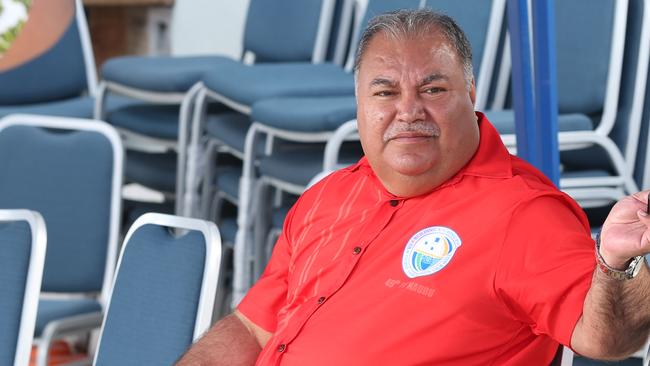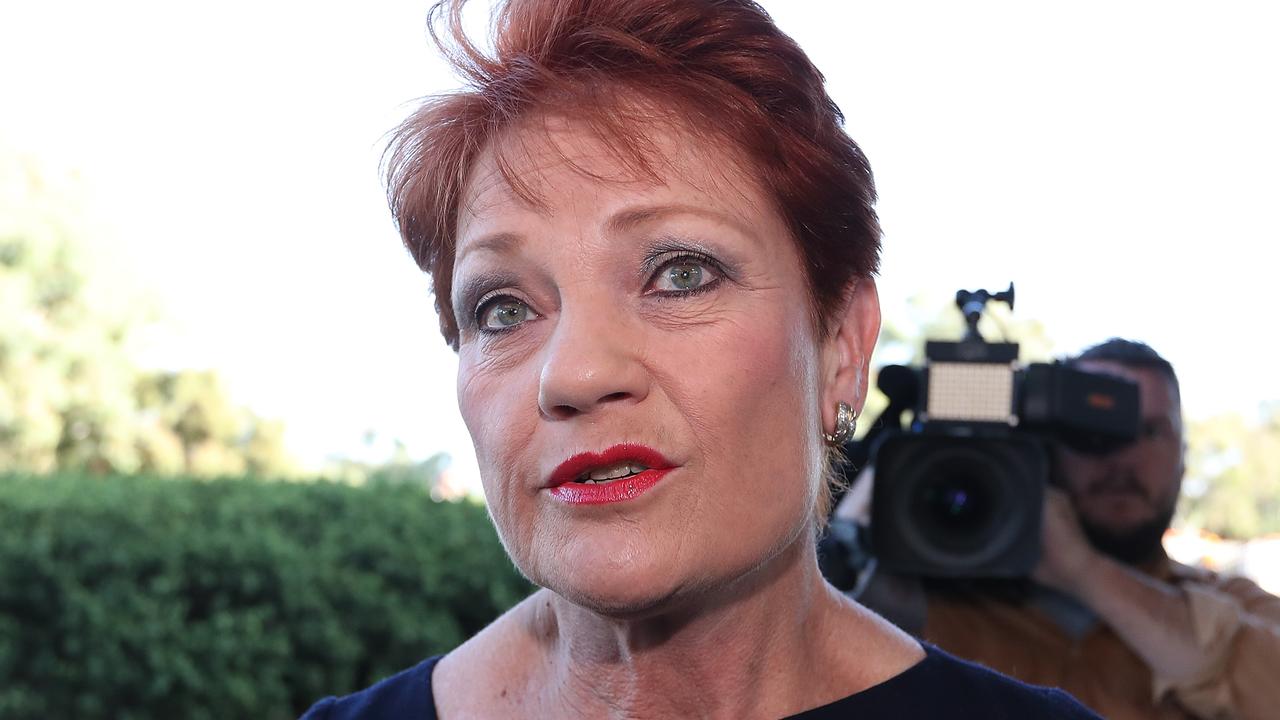Medics failed us and had to go, says Nauru
Nauru President Baron Waqa says respected charity MSF neglected locals while focusing on getting refugees to Australia.

Nauru has offered an explanation for why it sensationally kicked out international humanitarian organisation Medecins Sans Frontieres, accusing the respected charity of not doing enough to help Nauruan citizens while focusing on getting refugees on planes to Australia.
MSF strongly rejects Nauru President Baron Waqa’s claims about what happened during the 11 months the organisation was contracted to provide psychological and psychiatric services on Nauru.
“They were going to take care of our local people,” Mr Waqa said. “We have some mental cases. You will see them on the side of the road. They haven’t helped them at all. They are still with us. None of them have been (flown) to Australia.”
Mr Waqa, who said he received regular updates on the island’s refugees from Australian Border Force, told The Weekend Australian there were “some genuine cases” among the refugees flown by plane from Nauru to Australia for psychiatric treatment.
“Some of the refugees felt that they had missed out because (if) they are not crazy they will not go to Australia,” he said.
“But there are genuine cases, right. I know that … there are some really sick people there too.”
MSF called for the immediate evacuation of all refugees and asylum-seekers from Nauru on October 11 after the island government abruptly ended its contract.
In a press conference that followed, the group highlighted the hopelessness and despair among refugees and asylum-seekers living with uncertainty on Nauru, as well as the plight of Nauruan citizens living with “severe chronic conditions”.
“Medecins Sans Frontieres treated a significant number of Nauruan patients, many of whom showed significant improvement under MSF care,” it told The Weekend Australian in response to Mr Waqa’s claims.
“This data was presented in person by MSF management to the President and his cabinet as recently as June this year. MSF did request a transfer for at least one Nauruan patient, which Nauruan authorities failed to act on.”
Mr Waqa this week declined to reveal the dollar value of his nation’s deal with Australia, but he acknowledged the arrival of 1000 asylum-seekers on Nauru in 2012 and 2013 had brought significant economic benefits.
There are now about 500 people on Nauru who arrived by boat in Australian waters and were sent to the Pacific island for processing. About 450 have been recognised as refugees and 50 remain asylum-seekers.
The small republic is open for regional processing business from other countries, Mr Waqa said.
During four days on Nauru this week, The Weekend Australian heard varied accounts of life on the island from government officials, service providers, refugees, asylum-seekers and Nauruan families among the permanent population of 10,000.
In an interview in his presidential office, Mr Waqa said the depiction of Nauru as a prison island and a hell hole was wrong and hurtful. He sought to contradict what he believed were misunderstandings about conditions for refugees, stressing they moved freely throughout the island, ran businesses and worked in government departments and the local hospital. One Pakistani refugee, who has since settled in the US, went to Fiji on a holiday to celebrate his 21st birthday using a special passport issued by Nauru.
Mr Waqa said life on Nauru was relaxed, cheap and easy with free housing and healthcare and that is why he was not surprised that 40 of the 300 refugees who resettled in the US had since contacted the Nauru Department of Justice and Border Protection wanting to come back.
The Nauru government’s hardline approach to refugees it suspects of taking action that would lead to an airlift to Australia was on display in October when a young refugee woman was thought to have been stopped by her husband as she tried to give her baby a bottle containing her own crushed-up antidepressants.
The Weekend Australian understands the woman’s husband told authorities he slapped the bottle from her hands. As her mental health was assessed, and a transfer to Australia deemed necessary, the Nauruan government moved to issue her with a child protection order. The family was gone before the order could be enforced.




